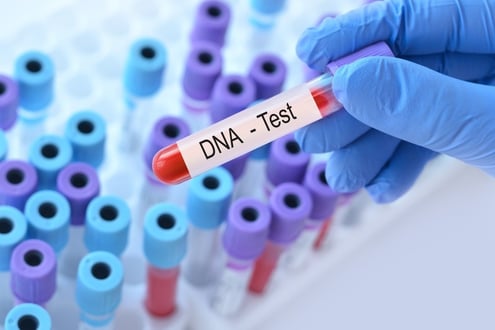Chemotherapy for Cancer Treatment
Using chemotherapy to treat cancer
Chemotherapies are a type of strong medication used to treat cancer. Doctors can choose from many different chemotherapy drugs. A chemotherapy drug may be used with another chemotherapy or with other types of treatments, including radiation, or . Each chemotherapy drug has different uses, benefits, risks and side effects.
What is chemotherapy?
Chemotherapy is a type of cancer treatment that kills cells that grow very quickly. Many cancers grow and divide quickly and abnormally, making them good targets for chemotherapy. Normal cells, such as skin, hair, blood cells and the cells that line the intestinal tract also grow rapidly, and chemotherapy can damage these too. This can lead to many of the side effects that people on chemotherapy experience.
What are antibody-drug conjugates?
Antibody-drug conjugates (ADC) are a newer type of cancer treatment. ADCs combine a and chemotherapy in the same drug. The targeted antibody portion of the drug is designed to find cancer cells. Once the antibody binds to the cancer cell, it releases the chemotherapy portion of the drug (sometimes called a "payload"). The goal is to deliver high levels of chemotherapy directly to the cancer while sparing normal tissue.
Antibody-drug conjugates are typically given by intravenous (IV) injection.
Examples of ADCs include:
- Elahere (mirvetuximab soravtansine)
- Enhertu (trastuzumab deruxtecan)
- Kadcycla (trastuzumab emtansine)
- Trodelvy (sacituzumab govitecan)
How is chemotherapy selected?
The choice of chemotherapy may depend on the following:
- Your cancer and grade: Because of its many side effects, chemotherapy is often used on hard-to-treat or aggressive cancers that are likely to spread or have already spread to other parts of the body.
- Your cancer type: Some types of cancer, such as ovarian and pancreatic cancer, are almost always treated with chemotherapy. Other cancers, such as breast cancer, may use chemotherapy for certain subtypes or stages of cancer.
- For cancer that has spread, the location or site of cancer spread: Certain chemotherapy drugs may work better in different organs. For example, the blood-brain barrier protects your brain by filtering out drugs. If cancer has spread to your brain, your oncologist may treat you with chemotherapy that is able to cross the blood-brain barrier.
- Your general health and other medical conditions: Chemotherapy can cause many side effects. Some drugs can affect the heart, liver, kidneys or other cells. Oncologists may choose specific chemotherapy agents for people with certain medical conditions, such as heart or kidney disease, to avoid further damage to these organs.
How is chemotherapy given?
Chemotherapy is often given as where the entire body is exposed to the medication. In some cases it may be given as a more localized treatment directly at the site of the cancer. Examples of the different ways chemotherapy can be delivered include:
- Injection in the veins (IV) or under the skin (subcutaneous).
- Oral chemotherapy, in the form of a pill, capsule or liquid taken by mouth.
- Intraperitoneal (IP) chemotherapy injected directly into the abdomen.
- Topical chemotherapy is usually a cream or liquid that is applied directly to the cancer site. Topical treatment is sometimes used to treat skin cancer.
Which cancers may be treated by chemotherapy?
Chemotherapy can work well to treat certain cancers, but it may also cause many side effects. Doctors may use tests (a test on the tumor) to decide which patients are more or less likely to benefit from chemotherapy. These tests can also help doctors select which treatments are most likely to be effective.
Despite the side effects, chemotherapy plays an important role in treating certain types of cancers, including, bladder, blood (lymphomas and leukemias), breast, colorectal, endometrial, , gastric, lung, ovarian, primary peritoneal and pancreatic cancer.
For melanoma and cancer, chemotherapy is mostly reserved for treating advanced, recurrent disease.
People with mutations in genes that repair damage, including , , and other mutations may benefit from a type of chemotherapy known as platinum chemotherapy. Cancer cells that have one of these mutations already have problems repairing , and platinum chemotherapy can make that worse.
When is chemotherapy given?
After a diagnosis of cancer, chemotherapy may be used at different time points, with different goals:
- chemotherapy is given before surgery to try to shrink a tumor.
- If a tumor is large, shrinking it may help the surgeon remove the entire tumor with wide margins of healthy tissue.
- It may also allow the oncologist to learn how well the cancer responds to a particular chemotherapy. If the cancer doesn't shrink, the oncologist may recommend a different type of treatment after the tumor is removed.
- is given to patients with disease after surgery to remove the tumor, when there is no longer evidence of disease. is used to treat any hidden cancer cells that may remain somewhere in the body after the cancer has been removed.
- Chemotherapy for advanced or cancers may be used to shrink tumors, reduce symptoms, decrease further spread and help people live longer.
FDA warning for 5FU and capecitabine
A small number of people treated with the chemotherapy drugs 5-FU (5-fluorouracil) or capecitabine (Xeloda) can have serious or even life-threatening side effects because their body breaks down the drug more slowly than is typical. These drugs are used to treat anal, breast, colon, gastric, pancreatic, rectal and other cancers.
A genetic test called DPYD testing can help identify people at higher risk for serious side effects before treatment starts. In 2025, the issued a warning about these risks and recommended DPYD testing prior to receiviing either drug. You can read more about it in our XRAY review on the warning and the recommended test.
Short-term side effects of chemotherapy
Some more common short-term side effects of chemotherapy may include:
- allergic reactions
- anemia and low blood counts
- fatigue
- hair loss
- nausea, vomiting, appetite changes and weight loss
- mouth and tongue sores
- nerve damage, tingling and pain in hands and feet
Most of the symptoms above are temporary and resolve after chemotherapy ends.
Some people may experience an allergic reaction from chemotherapy. These reactions can range from mild to severe and are rarely fatal. Your oncologist may prescribe medication to decrease your risk for severe allergic reactions to chemotherapy.
Anemia, bleeding and low white blood cell counts
Some chemotherapy damages bone marrow, where blood cells are made. This can result in too few red blood cells (anemia), too few platelets (thrombocytopenia) and a low white blood cell count (neutropenia). These bone marrow effects can cause fatigue, rapid heart rate, bleeding and increased risk for infection. Your oncologist may frequently test your blood to ensure that your blood counts do not drop too low, which could delay treatment. Some people may need a blood transfusion to quickly raise their blood counts. Doctors may prescribe medications that stimulate the bone marrow to make more blood cells. Diet changes or supplements may also improve anemia.
Fatigue is a common affect of cancer and treatment. It can be short-term but may persist months or years after treatment.
Expert guidelines recommend that doctors ask cancer patients about their level of fatigue during their regular visits. You should report fatigue to your doctor so you can be checked and treated for underlying causes, including depression, sleep disturbances and medication side effects. Although no medications can counteract the fatigue caused by chemotherapy, some options may improve your energy level, including:
- making sure that your diet is balanced and provides you with adequate nutrition. Ask your doctor for a referral to a nutritionist if you need help figuring out your dietary needs.
- ensuring that you get adequate sleep.
- staying physically active even when you are tired. This can help improve your energy level.
Many chemotherapy agents cause hair loss. Scalp cooling devices—including Paxman and Polar Cold Cap—protect hair follicles from the damaging effects of chemotherapy. These devices are not effective for everyone; people who use them may still experience some hair loss.
Nausea, vomiting and appetite changes
Digestive issues are common during chemotherapy. Despite these effects, it's important to try to maintain proper nutrition while on treatment. Your body needs calories and nutrients to fight cancer and repair the damage caused by chemotherapy. Several different medications may help reduce nausea, vomiting and diarrhea during chemotherapy. Reducing nausea can improve appetite, reduce weight loss and support a balanced diet. If you need help, ask for a referral to a nutritionist. It can be helpful to eat small meals and identify the foods that are less likely to trigger nausea, vomiting or upset stomach. Ginger candies or gingerale may help settle upset stomach from chemotherapy.
Chemotherapy can cause painful sores of the mouth and lips (stomatitis), which can make eating painful. Certain medications can help to repair mouth cells, coat the sores or block the pain caused by the sores. Rinsing your mouth with salt or baking soda can also improve mouth sores. Sucking ice chips during chemotherapy may protect your mouth and tongue from the damaging effects of chemotherapy.
Long-term side effects of chemotherapy
Some of the longer-term effects may include:
- fatigue
- loss of fertility
- nerve damage, tingling and pain in extremities
- difficulty focusing or thinking (also called chemobrain)
- heart damage
- hearing loss
- risk for a secondary cancer
Some of these effects may improve with medication or other medical interventions. It's important that you report any symptoms or changes in your health to your doctor. You may also report any suspected side effects directly to the online or by calling 1-800-FDA-1088.
Some chemotherapy can cause early menopause in women and low sperm counts in men. These changes may be temporary or permanent. Options are available for men and women who are diagnosed with cancer and wish to preserve their fertility. It's important to discuss fertility preservation before starting treatment for cancer.
Nerve damage, tingling and pain
Some chemotherapy drugs can damage nerves, leading to pain, numbness, tingling or weakness in the arms, legs, hands and feet. This condition is often referred to as chemo-induced peripheral neuropathy (CIPN). It may go away on its own or improve over time. In some cases, it may be permanent. Certain chemotherapy agents—such as taxanes and platinums—are more likely to cause CIPN than other drugs. Medications may help to reduce the symptoms of peripheral neuropathy. Physical therapy, acupuncture and certain types of exercise may also help to reduce symptoms and improve strength and balance.
Chemotherapy may affect memory and function; patients sometimes refer to this as "chemobrain." This change can persist years after treatment ends. You should report changes to your doctor. You should also be checked and treated for underlying causes, including depression, sleep disturbance, fatigue and medication side effects. Limiting alcohol and drugs that can affect memory may improve chemobrain. Some research shows that people with chemobrain may benefit from yoga, exercise, mindfulness, meditation, training and Modafinil, a drug used to treat sleep disorders.
Certain chemotherapy—especially adriamycin—can cause heart damage. Your oncologist may run tests to ensure that your heart function is normal before, during and after chemotherapy. Some drugs may help protect the heart from damage caused by chemotherapy. Heart damage can also be minimized by lowering the dose of chemotherapy, changing how it is given or switching to a different drug.
Most patients who receive platinum chemotherapy do not experience problems with hearing. Some patients, however, experience hearing loss and ringing in the ears. This is most common with platinum chemotherapy. Although no treatments are available for hearing loss caused by chemotherapy, clinical trials are testing medications that may protect cells in the ear from chemotherapy-related damage. This type of damage tends to happen over time, so it's important to notify your oncologist of any changes to your hearing while you receive chemotherapy.
Although rare, some types of chemotherapy can increase the risk for a new cancer diagnosis. This can happen even many years after treatment. The majority of cancers associated with chemotherapy are blood cancers (leukemias and lymphomas).
Managing side effects of chemotherapy
Chemotherapy kills cells that are rapidly dividing. Unfortunately, some normal cells—such as skin, hair and blood cells, and the cells that line the intestinal tract—grow rapidly, and chemotherapy can kill these cells too. This can lead to many side effects. Each person experiences chemotherapy differently, yet not everyone experiences chemotherapy side effects.
Depending on the symptom, there may be options for minimizing or eliminating these side effects. Before starting treatment with chemotherapy, it's important to talk with your doctor about the following:
- possible treatment side effects, how serious they are, and how likely they are to occur.
- options for managing each side effect.
- who you should contact if you experience a side effect.
- which side effects are serious and should be seen by a doctor right away.
Some general tips for managing chemotherapy side effects include:
- Stay well hydrated.
- Make sure you get the proper nutrition. Ask for a referral to a nutritionist if you need help.
- Use a symptom-tracking app to help you keep track of side effects and report them to your doctor. Some hospitals have apps that connect directly to your electronic health records.
- Consider participating in a clinical trial of new ways to manage chemotherapy side effects.
Questions for your doctor
Below are some questions to ask your doctor if chemotherapy is part of your treatment plan.
- What is the name of the chemotherapy that I am taking?
- Are there any or genetic tests that can predict if chemotherapy will work for me?
- What is the goal of chemotherapy?
- How long will I be on chemotherapy?
- How is the chemotherapy given?
- Will I need to be in the hospital while on chemotherapy?
- What are some of the side effects I may experience while I'm on chemotherapy? When am I most likely to experience them?
- What are the serious side effects I should look for? Who should I contact if I experience them?
- Are there any medications or steps that I can take to avoid or lessen side effects?
- How will you monitor me while I'm on chemotherapy?
- What are my options if my cancer comes back while on, or after taking this chemotherapy?
- What are the long-term effects that I should look for? Who will monitor me for long-term effects?









